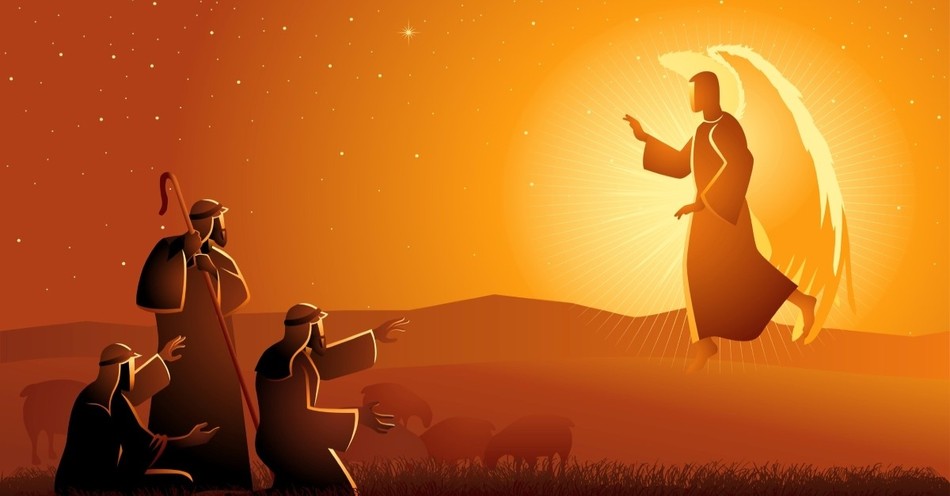Luke 2:11 is short, a single sentence full of significance at Christmas and beyond December 25. “Today in the city of David a Savior was born for you, who is the Messiah, the Lord” (CSB).
Consider when and where Jesus was born; why he was born; and who He is. Luke’s words are more than statistics from a science-minded disciple.
The Angel as Emissary
An angel of the Lord spoke the words of Luke 2:11 to shepherds in their field, watching their sheep. This angel declared, “Today…. a Savior was born.” For many centuries, the Jews had anticipated the arrival of their Savior.
Isaiah 9:6 reads, “For a child will be born for us…. Wonderful Counselor, Mighty God, Eternal Father, Prince of Peace” (CSB).
When the shepherds began their journey to see this miracle, they were assured the event had taken place; this was no longer an event to look forward to. God had ended his silence, he had fulfilled prophecy, and a new age had arrived.
The people only had to watch and wait now as the child grew into a man who would save them. Augustine wrote that “Christ is both David’s son and David’s Lord: David’s Lord always; David’s Son in time.”
In other words, Jesus was “born” into a specific time, and yet he always was. This was not the night when Christ came into being; this is the night he became “Immanuel” (Isaiah 7:14) which means “God with us.”
Place of Honor
Isaiah 9:7 tells us that the child would “reign on the throne of David.” His rule would begin here, but the reach of his power would be “vast.”
For centuries, the people of Israel had been anticipating the arrival of God’s promised Savior, a descendant in the line of King David.
In his rebuke against Israel, Isaiah declared, “Listen, house of David!” The oft-made reference to King David lends importance to this association with the “City of David.” Jesus would be one of them, a Jew.
But Mary Fairchild reminds us that David was “born and raised” in Bethlehem. He would eventually sit on the throne of Israel, but his beginnings were as humble as Jesus’.
Like David, Immanuel was not born in a palace. The infant Jesus was surrounded not by the incense and finery of royal life but by the smells of animals and the lowliest people of his culture at the time.
The shepherds would have felt at home around the manger and yet would have stood in awe of their Savior King.
Born for Restoration
The Savior was born “for you;” for the shepherds; for Israel; and for all people. The NIV and ESV say “to you” while the NASB and Amplified versions translate to the preposition “for.”
Two other translations, the Good News Bible and the International Standard Version tell us “Your Savior” was born.
This anointed one came to serve: “The Spirit of the Lord is upon me, because he has anointed me to proclaim good news to the poor. He has sent me to proclaim liberty to the captives and recovering of sight to the blind, to set at liberty those who are oppressed” (Luke 4:18).
His job was to reach out to all people who knew they needed a Savior. While “the poor” still referred to those who lived in poverty, Jey J. Kanagaraj explained that “from the period of the monarchy until the inter-testamental period, including up to Jesus’ time, the term was strongly applied to those who, in lowliness and humility, lived in dependence on God.”
And yet he was “Lord.” He was King, ruler, the Sovereign who came to earth as a man in order to save sinners i.e. everyone who would admit they needed saving.
“For” is evocative of need. Someone can come to a place, even to a people, but with a purpose that is not for them. A delivery driver might come to one’s door with a parcel for the neighbor who is not answering his doorbell.
One might argue that the angels came to shepherds with a message for others, and this was partly true. Luke gives us an account of a message relayed; a message shared beyond the shepherd’s fields and beyond the time in which they heard the angel’s declaration.
But we also know that Christ came for the shepherds. “Blessed are you who are poor, for yours is the kingdom of God” (Luke 6:20). Jesus expressly sought out the company of those whom society regarded as “least.”
What need did Jesus’ birth satisfy? He came to restore them to the Father. Paul wrote that God “has reconciled us to himself through Christ” (2 Corinthians 5:18).
Christ came to satisfy this need: that all people would be restored to God through Jesus Christ. The last were first (Matthew 20:16).
Name above All Names
The angel declared that the baby was “Messiah, the Lord.” He did not hold a position between Angel and Lord. He was a man; he was Messiah; and he was God.
The name “Messiah” means “anointed one” or “the Christ,” “Jesus” was not an unusual name, but the title “Messiah” or “Christ” was reserved for one person.
Jesus is given the name “Christ” over 500 times in the New Testament, clearly indicating that he was acknowledged as the anointed, long-awaited Savior of Israel and of all who would believe in him alone for salvation.
Jesus was born, he would grow up, learn, live, and walk among his people and those who would later follow him. All other men and women are born to their parents and, in this moment, though they are known to God from eternity, this is when they first come into existence.
Christ always was and he always was Lord. Hebrews 13:8 says, “Jesus is the same yesterday, today, and forever.”
In his revelation to John, Jesus proclaimed “I am the Alpha and the Omega, [...] the one who is, who was, and who is to come, the Almighty” (Revelation 1:8).
The Example and the Hope
The implications of living in obedience to such a king are huge. His arrival as a human child indicates the need for humility in the life of a believer. He also became vulnerable: Christians can entrust their weakness to a loving and trustworthy God.
He will not exploit their weakness, although believers will have to carry their respective crosses, but they do this willingly, for the joy of following Jesus Christ their Savior. Christ retained his authority which is now perfected in resurrection glory.
In weakness, Christians have inherited this same resurrection power, not to the extent of becoming deities in their own right.
Remember that Jesus did not “become” God when he was raised from the dead. He was with God in the beginning, and he never lost that status.
What often impacts a reader, encountering Luke 2 for the first time, is that Jesus is for everyone. He is King, the very angels of his Kingdom proclaimed the good news — to the lowliest people of their time.
Knowing this truth reminds ordinary people that Jesus does not care about socioeconomic or educational backgrounds, status, or how a person smells or appears to others: he sees the heart — any heart — that yearns for rescue from sin.
Jesus is for everyone, even the people who truly believe they are the most unloveable individuals on earth.
For further reading:
4 Lessons We Can Learn from the Shepherds at Jesus’ Birth
What Does it Mean to Have a Shepherd’s Heart at Christmas?
What Do We Know about the Shepherds at Jesus’ Birth?
Photo Credit: ©Getty Images/rudall30




